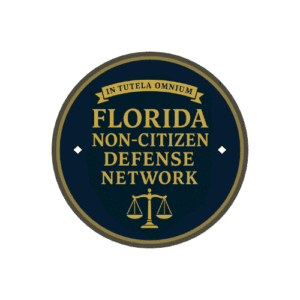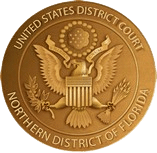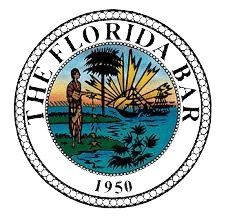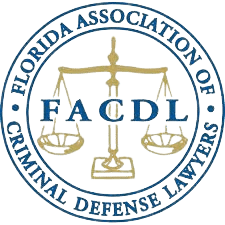T
Below is what it takes to wear the FNCDN badge In Tutela Omnium (“In the protection of all”):
| Standard | What We Verify | Why It Matters |
|---|---|---|
| Trial Competence | ≥ 2 jury trials in the last 3 years(or a persuasive written explanation—COVID backlog, appellate focus, etc.) | We won’t let “plea-machine” lawyers handle immigrant futures. Prosecutors offer better deals when they know your counsel will actually pick a jury. |
| Values Alignment | Quiet review of public posts, bar filings, community work, and client reviews for evidence of pro-immigrant advocacy—or at least no nativist grandstanding. | Clients deserve counsel who see them as neighbors, not political talking points. |
| Professional Integrity | No unresolved Florida Bar discipline that raises honesty or competence concerns. | Enough said. |
Why Trial Experience Still Matters
Our experience has proved to us time and again that a defense lawyer’s demonstrated readiness to try a case—however infrequently trials actually occur—has a measurable impact on plea negotiations and ultimate outcomes. For non-citizen clients, that incremental leverage can be the difference between a disposition that preserves lawful status and one that triggers removal proceedings.
Accordingly, FNCDN asks each member to document at least two jury trials in the past three years (or provide a cogent explanation, such as an appellate docket or pandemic-related slowdowns). This modest threshold signals genuine litigation capability without excluding smaller or specialty practices. It also reassures our statewide partners—and, ultimately, our clients—that any recommendation to accept a plea is grounded in strategic judgment, not administrative convenience.
By maintaining this standard, the Network fosters a culture of thorough case analysis, informed risk assessment, and ethically sound advocacy—values that are essential when immigration consequences amplify the stakes of even minor criminal allegations. If those principles align with your practice philosophy, please reach out to us. We would love to hear from you.





